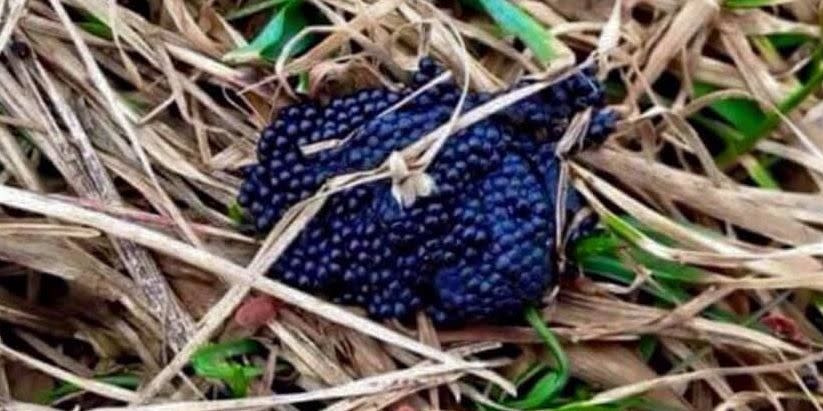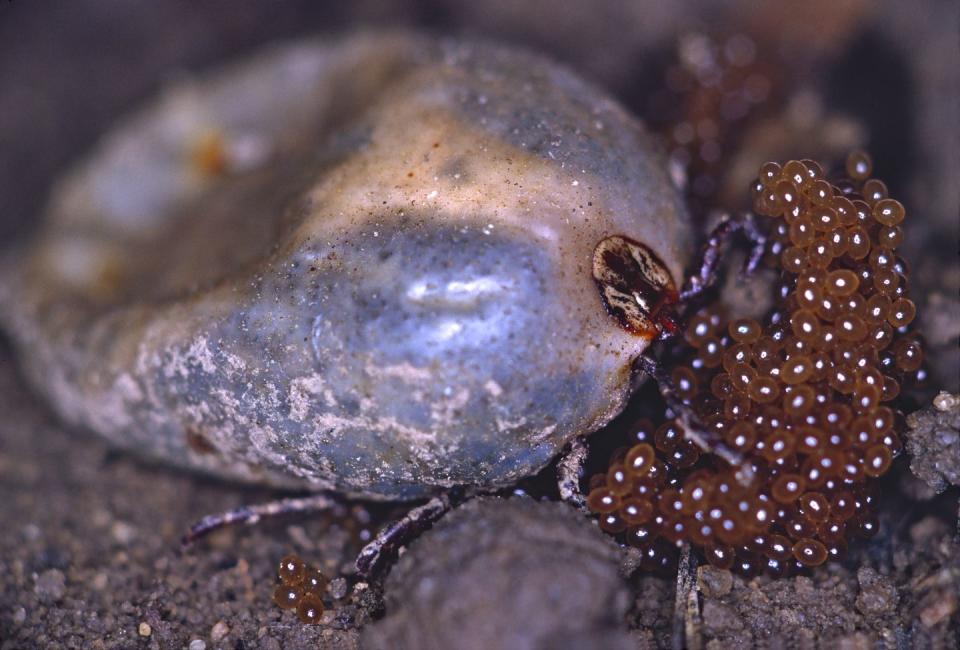That Viral Photo of a “Tick Nest” Everyone Is Talking About Is a Complete Hoax

Ticks are undoubtedly gross. They sink their mouthparts into you and feast on your blood like little vampire bugs — sometimes transmitting diseases in the process. But their inherent ick factor has people on Facebook a little too riled up about the upcoming tick season.
A viral warning is making the rounds on social media as users advise their friends and family to identify "tick nests" and destroy them when they seem them. "FYI if you come across one of these, it's not blackberries or animal waste," one caption reads. "It's a TICK NEST. BURN IT!!!"
The only problem: The accompanying photo is very certainly not of a tick nest, says Robert B. Kimsey, Ph.D, an entomologist with the University of California, Davis specializing in ticks.
"Judging by the size of the grass in the photograph on Facebook, the eggs are definitely not tick eggs," he says. "They're way too big." Snopes suspects the viral photo, which actually dates back to 2015, may actually depict frog eggs spit out by an unsuspecting predator.
Real tick eggs are so teeny-tiny, the entire batch is only as big as two adult female ticks. They also look more reddish-brown — not black like in the picture, Dr. Kimsey adds.

The odds of even finding tick eggs in the first place are super slim due to their size, so your best course of action might be leaving any potential "nests" alone. "Chances are all none of the eggs you destroy over the course of lifetime are going to be tick eggs," Dr. Kimsey says. "They're going to be the eggs of slugs, snails, other kinds of spider relatives, insects — all different sorts of things."
Out of the some 5.5 million insect species on Earth, most lay eggs, he adds. The tick eggs you may think you're destroying could belong to another species important to your local ecosystem.
If you're really worried about ticks, protect yourself by applying insect repellent and avoiding wooded and brushy areas with high grass and leaf litter, the Centers for Disease Control advises. There's officially no need to keep matches in your pocket for this latest internet hoax.
You Might Also Like